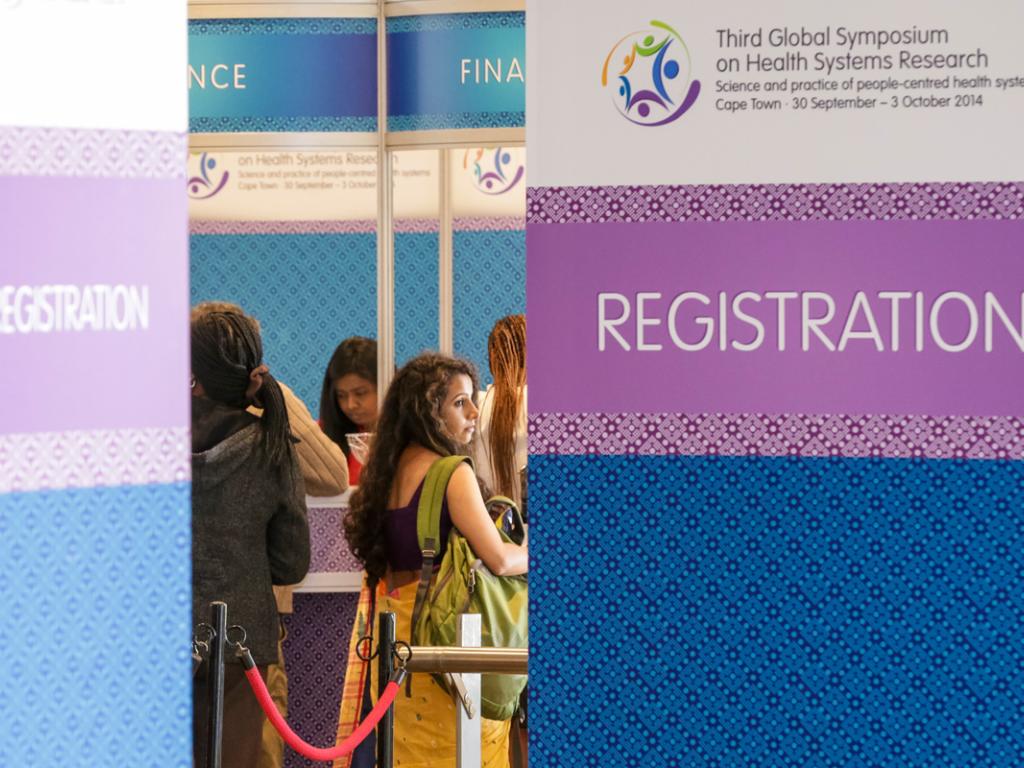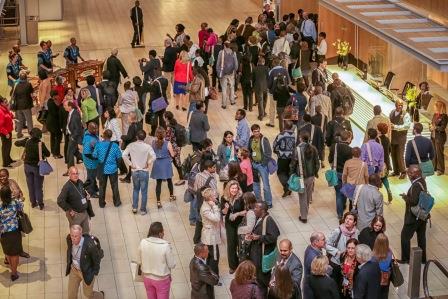Third Global Symposium on Health Systems Research

Almost 2000 participants from 125 countries attended the Third Global Symposium on Health Systems Research (30 September to 3 October 2014) held at the CTICC in Cape Town. This was the culimination of an almost two year long process managed by the South African Local Organising Consortium, led by UCT’s Health Economics & Health Policy and Systems Divisions from the School of Public Health and Family Medicine. The SA-LOC, as it became known, involved colleagues from across five organizations in the Western Cape (the University of Cape Town, University of the Western Cape, Stellenbosch University, Health Systems Trust and the Medical Research Council), who worked in collaboration with the South African National Department of Health as well as Health Systems Global, a new membership society for the field of health systems research, the Alliance for Health Policy and Systems Research, and the World Health Organization.

The development of the Symposium over the last 2 years could be seen as a grand puzzle. The overall expected result was already clear: deliver a world-class Symposium that brings together researchers, policy-makers, activists, funders, managers, and implementers involved in health systems from all global regions, to Cape Town, South Africa, and create the platform for dynamic dialogue around the theme of the science and practice of people-centred health systems.
But working out the unique shape of each puzzle piece, or activity, kept the organizers busy for many hours, days (and nights!) – and making the puzzle pieces fit together, taking account of our guiding principles of inclusivity, diversity and promoting active debate, was the true challenge.
In the end, with Lucy Gilson and Di Mcintyre taking overall responsibility for the programme, logistics and finances, as well as a team of both senior and young researchers working on all aspects of planning within the SA LOC, the effort was well worth it. Together we delivered:
- four provocative plenary sessions, with contributions and panel debates featuring leading health systems researchers as well as activists and policy makers, including a video message from Margaret Chan (Director-General, World Health Organization, Geneva), a keynote address from Deborah Birx (Ambassador-at-Large and US Global AIDS Coordinator), and a special welcome message from Malebona Precious Matsoso (Director-General for Health, South Africa);
- 170 parallel and satellite sessions including individual presentations, panel discussions, and innovative formats such as fishbowl and world-café style sessions;
- 572 posters, with 3 daily winners in a poster competition;
- a film programme with 11 films; and
- a successful 60-strong volunteer programme drawing on post-graduate students and staff from the SA LOC organisations, who were able to get a first-hand feel of both the Symposium’s organisational needs and substantive debates.
On the social front, the official welcome reception featured a local marimba band, AmaAmbush; the official opening of the Symposium featured KwaNtu Sounds of the SA College of Music at UCT; and the symposium dinner was headlined by Freshly Ground. Dancing together only energized the participants for further debate!
Ultimately, after the last presentation, corridor conversation and networking opportunity was concluded, all the effort behind the scenes had resulted in an agenda-setting opportunity for health systems development work and research in South Africa, the African continent and globally. The feedback has been uniformly positive for a Symposium that recognised the health system fragilities that underlie the current Ebola crisis, higlighted the politics of health system development globally and identified the need for a new social movement focussed on generating fundamental health system change. New forms of research and networking are needed, as well as activist-scientists. These conclusions and others are reflected in the Cape Town Statement released during the Symposium’s concluding plenary session on Friday 3 October 2014.
http://hsr2014.healthsystemsresearch.org/news/cape-town-statement
